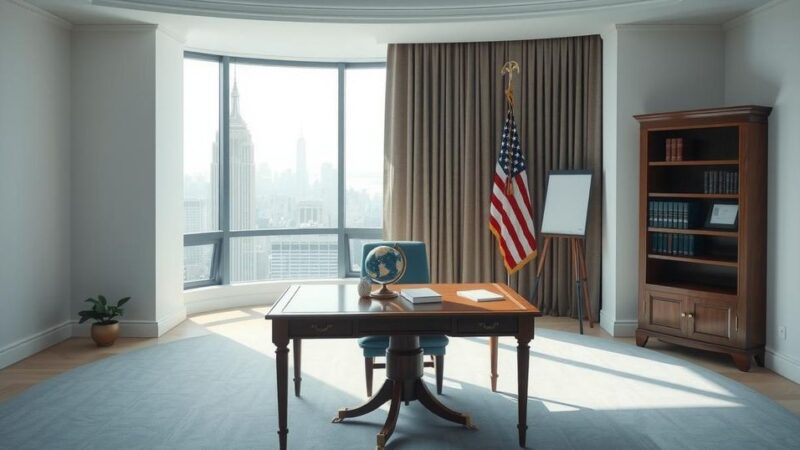Senator Marco Rubio plans to lobby Thailand to prevent the deportation of 48 Uyghurs back to China, where they face potential persecution. The Uyghurs have been detained since 2014 under harsh conditions and have recently initiated a hunger strike in response to the threat of deportation. Advocacy groups highlight that returning them would violate Thailand’s international obligations. Recent reports suggest they may not be at immediate risk, but calls for their release continue.
United States Senator Marco Rubio has committed to lobbying Thailand to prevent the deportation of 48 detained ethnic Uyghurs back to China, where they may face persecution. This development highlights the significant influence Rubio could exert on U.S.-China relations amid rising tensions, especially as the Trump administration prepares to impose tariffs on Chinese goods. The Uyghurs have been held in Thailand since 2014 under poor conditions, prompting concerns about their well-being and future. Rubio emphasized the need to remind the international community about the Uyghurs’ plight in China, where millions are reported to be detained in internment camps. Amidst this, the Uyghurs themselves resorted to a hunger strike to advocate against their deportation, expressing urgent fears for their safety if returned to China. Advocacy groups warn that Thailand’s potential action could violate its obligations under international law, especially concerning the treatment of refugees. Some recent reports suggest that the Uyghurs might not be at immediate risk of deportation, but calls for their release persist, highlighting ongoing efforts by various organizations and lawmakers to secure their rights and safety.
The plight of the Uyghurs, a Muslim ethnic minority from China’s Xinjiang region, has drawn international condemnation due to allegations of systemic repression enforced by the Chinese government. Many Uyghurs have fled to neighboring countries, including Thailand, in search of safety from persecution. However, Thailand, which is not a signatory to the 1951 U.N. Refugee Convention, has faced pressure from China to repatriate these individuals. The situation is complicated by global political dynamics, especially concerning the U.S.-China relationship, as the incoming Trump administration is poised to adopt a more confrontational stance toward China, complicating matters for countries like Thailand that engage in diplomatic relations with both nations.
Senator Marco Rubio’s commitment to advocate for the detained Uyghurs reflects broader human rights concerns regarding China’s treatment of this minority group. The upcoming actions of the Trump administration could significantly influence such international matters. Continuous pressure from advocacy groups, coupled with the Uyghurs’ ongoing hunger strike, emphasizes the urgent need for legal and social support for these individuals. The U.S.’s diplomatic approach may play a crucial role in addressing humanitarian crises like this one moving forward.
Original Source: www.benarnews.org







